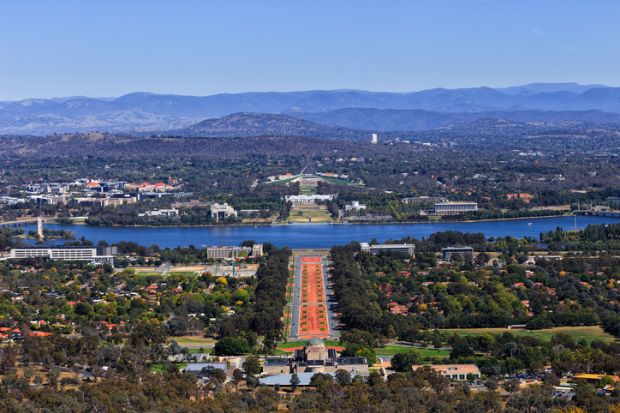Australia’s universities are highlighting their role as employers in their own right as well as backbones of employment, as they make the case for a policy makeover under the recently elected Labor government.
In a speech to the National Press Club in Canberra, Universities Australia (UA) chair John Dewar was due to point out that in addition to educating the graduate workforce, member institutions are “often the largest employer in town”.
“Where there is a university, there is work for locals – lots of it,” Professor Dewar was set to say, according to excerpts of his speech obtained by Times Higher Education. “Administrators, security staff, cooks, cleaners, baristas and IT technicians – we employ them by the thousands.
“The role of universities is particularly obvious in the regions, especially those with economies and communities in transition, in need of new skills and careers for their people.”
The 6 July press club appearance serves as a curtain raiser to UA’s first national conference since the change of government. The summit is likely to provide a taste of the new administration’s plans for the sector, with education minister Jason Clare scheduled to address an opening-day conference dinner at Parliament House.
Shadow education minister Alan Tudge is due to address the forum the following morning.
Professor Dewar, vice-chancellor of La Trobe University in Victoria, was also expected to press for a higher education policy reset to recognise universities’ role in a transformed nation. He was set to invoke recently released statistics from last year’s census to show how profoundly the sector’s mission has changed in recent decades, with about one-third of the adult population now holding degrees – up from about 6 per cent in the 1980s and 1 per cent in the 1960s.
“The millennials, who now outnumber the baby boomers, are the most highly educated generation in history,” his speech says. The 2021 census marked a “significant milestone”, with the degree-educated proportion of women aged between 25 and 34 – the reference age group for the last Labor government’s university attainment target – edging over 50 per cent.
Professor Dewar was also set to lobby for the research system to be put on a more “sustainable” footing, blaming Australia’s flagging productivity levels on declining investment in research and development.
Every dollar spent in university research delivers a fivefold return, he was due to say, adding that a 1 per cent increase in higher education research and development investment would add A$28 billion (£16 billion) to Australia’s economy over 10 years.
Every dollar spent on university teaching produces benefits worth $3, he was expected to add, saying extra funding of university places would help address crucial skill shortages.
Professor Dewar was also expected to discuss the Job-ready Graduates (JRG) reforms to university funding, which the ousted Liberal-National government pledged to review 18 months after their implementation in early 2021.
Mr Clare has committed to press ahead with the review as part of a “university accord” the government plans to develop over the next few months.




